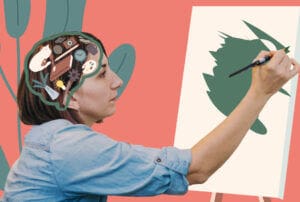1. People with dyslexia are often more creative
Dyslexia is not related to low intelligence. Children and adults with dyslexia are often highly creative.
2. Dyslexia is highly hereditary
A child has 50% chance of having dyslexia if one parent has it. And a 100% chance if both parents have it.
3. Dyslexia is very common
1 in 5 people have dyslexia. Approximately 70-80% of children are placed in special education classes because of dyslexia. However, people with dyslexia often have average to high intelligence.
4. The symptoms of dyslexia aren’t always what you think
It is often thought that people with dyslexia see words and letters backwards, however this is not a sure sign of dyslexia. Many children reverse their letters when learning to write whether or not they have dyslexia. There are many symptoms of dyslexia and a person will often only exhibit a handful of them.
5. Dyslexia is not a disease
Dyslexia can sometimes make it difficult for a person to learn in the traditional sense. But it is not a “disease” or something that needs a “cure”. There are many ways to effectively teach people with dyslexia by catering to that person’s strengths and needs.
